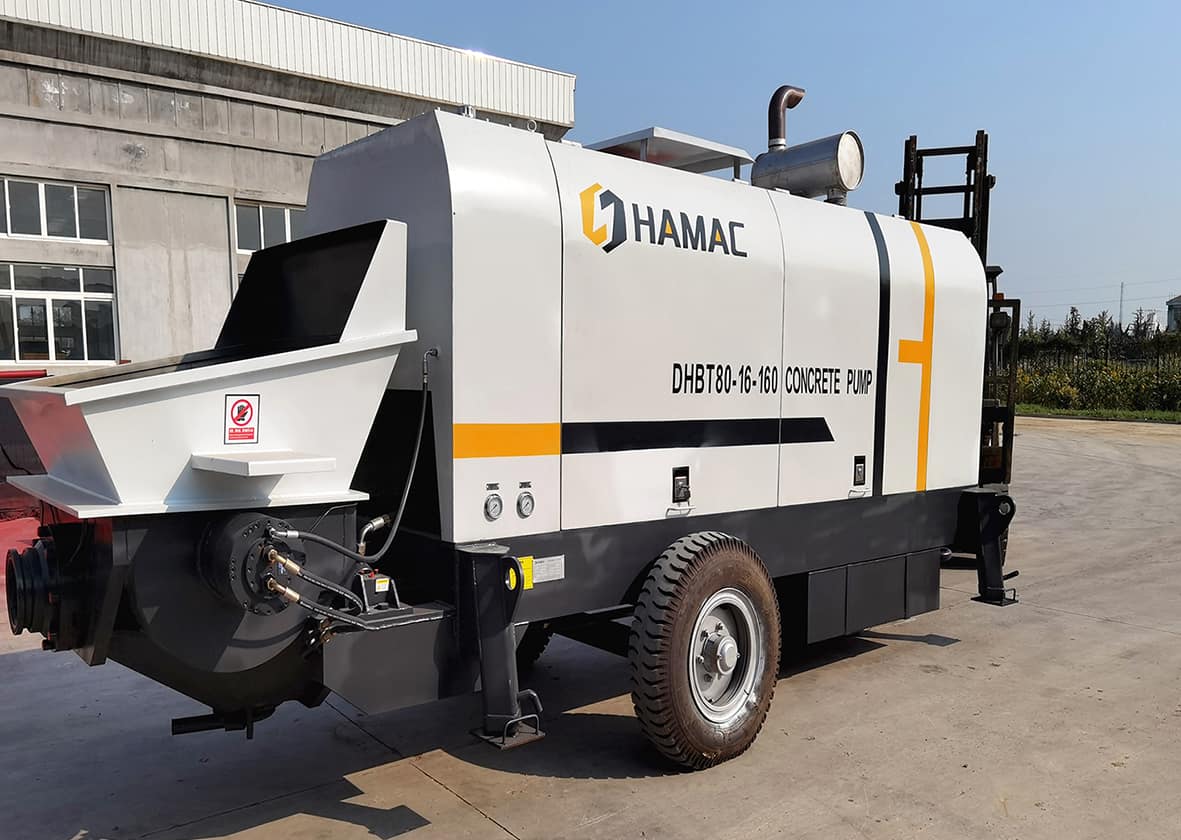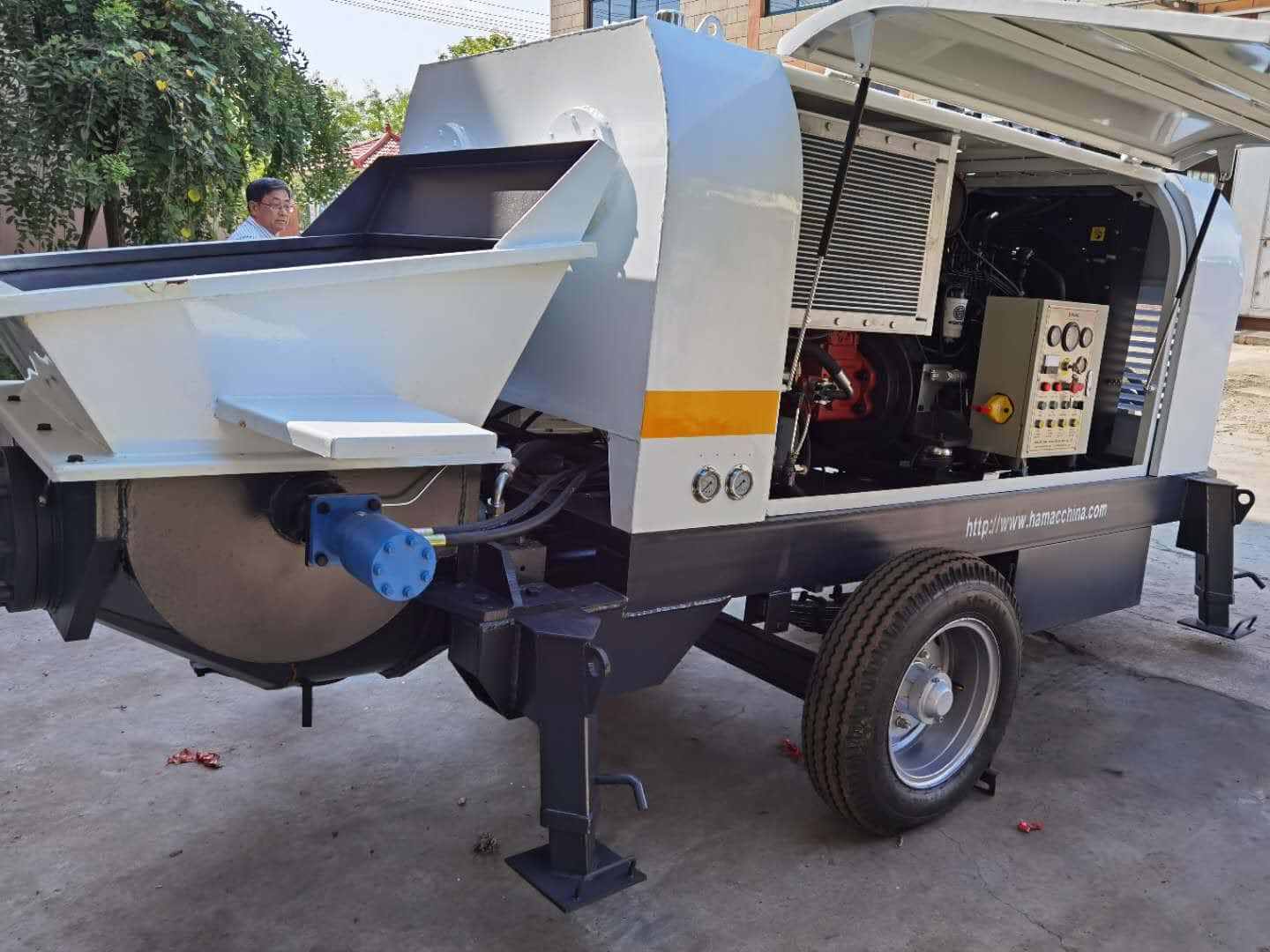How to choose the right concrete pump trailer for my project?
Last Updated: 2025-08-02
Selecting the ideal concrete pump trailer is crucial for ensuring efficiency, safety, and cost-effectiveness in your construction project. With various models and specifications available, making the right choice requires evaluating your project’s unique needs, site conditions, and long-term goals.
1. Assess Your Project Requirements
Start by analyzing the scope of your project:
- Volume of Concrete: Determine the daily or hourly concrete output needed. Larger projects may require high-capacity pumps (e.g., 70–90 m³/h), while smaller jobs can use compact models (30–50 m³/h).
- Vertical and Horizontal Reach: Measure the maximum height and distance concrete needs to be pumped. Choose a pump with a boom or hose length that matches these requirements.
- Concrete Mix Type: Some pumps handle standard mixes, while others are designed for specialized mixes like self-compacting or high-viscosity concrete.

2. Consider Site Constraints
Evaluate the job site’s physical limitations:
- Accessibility: If the site has narrow roads, tight corners, or limited parking, opt for a compact, trailer-mounted pump with easy maneuverability.
- Terrain: For uneven or rough terrain, select a pump with sturdy wheels or tracks to ensure stability during operation.
- Power Source: Decide between electric pumps (quieter, eco-friendly) or diesel-powered pumps (more portable, suitable for remote sites).
3. Compare Pump Types
Trailer-mounted concrete pumps come in two main configurations:
- Boom Pumps: Feature a robotic arm for precise placement, ideal for high-rise buildings or large-scale projects.
- Line Pumps: Use flexible hoses for shorter distances and lower heights, perfect for residential or small commercial jobs.
Choose based on your project’s vertical reach and placement accuracy needs.
4. Evaluate Durability and Maintenance
Invest in a pump built to last:
- Material Quality: Look for pumps with wear-resistant parts (e.g., hardened steel components) to minimize breakdowns.
- Ease of Maintenance: Check if spare parts are readily available and if the pump is designed for quick cleaning and servicing.
- Warranty and Support: Prioritize brands offering reliable after-sales service and extended warranties.

5. Factor in Cost and ROI
Balance upfront costs with long-term savings:
- Initial Investment: Higher-capacity pumps cost more but reduce labor and time for large projects.
- Operating Costs: Diesel pumps may have lower fuel efficiency than electric ones, impacting long-term expenses.
- Rental vs. Purchase: For short-term projects, renting may be more cost-effective than buying.
6. Read Reviews and Seek Expert Advice
- Customer Feedback: Research reviews from contractors who’ve used similar pumps on comparable projects.
- Consult Suppliers: Reach out to manufacturers or dealers for personalized recommendations based on your needs.
Choosing the right trailer concrete pump involves aligning your project’s demands with the pump’s capabilities, durability, and cost. By carefully evaluating these factors, you can ensure seamless concrete placement, improved productivity, and a higher return on investment.
TAG: Choosing Concrete PumpsConcrete Pump SelectionConcrete Pump TrailerConcrete Pumping Solutions
